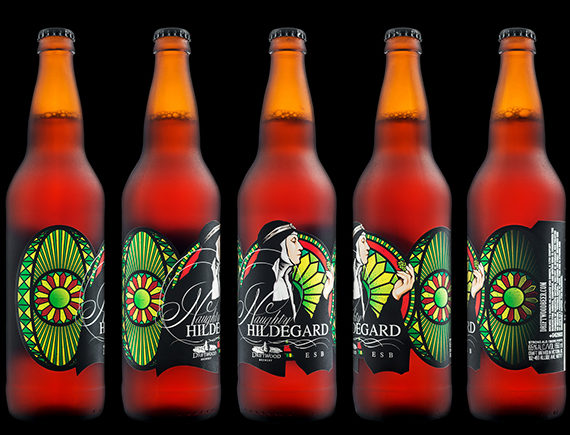Six Reasons to Use Bitters for Health
Importance of Bitters: Saint Hildegard von Bingen
A bitters is traditionally an alcoholic preparation flavored with botanical matter so that the end result is characterized by a bitter, sour, or bittersweet flavor.
Healthy Hildegard shared that bitter foods and herbs have a long and well-documented history as a digestive aid. They write that the use of bitters for their digestive benefits is consistent across many cultures and medicinal systems around the world. Based on their review of research on bitters and digestion it was worth seeing what other research was going on. based upon Traditional German Medicine.
Table of Contents
Six Reasons you should use Bitters for Health
Bitters are herbal tinctures or extracts that are known for their bitter taste. They have been used for centuries in traditional medicine systems, and modern research is beginning to uncover some potential health benefits associated with their consumption. Here are six reasons why people use bitters for health:
- Digestive Health: Bitters are believed to stimulate the production of digestive enzymes, which can enhance the digestive process. They can help increase saliva, gastric acid, and bile production, all of which aid in breaking down food and absorbing nutrients more efficiently. This can potentially alleviate digestive discomfort, bloating, and indigestion.
- Appetite Stimulation: Bitters have been traditionally used as appetizers due to their ability to stimulate the appetite by signaling the body to prepare for digestion. This can be especially helpful for individuals with a poor appetite or those who struggle with irregular eating patterns.
- Blood Sugar Regulation: Some studies suggest that bitters may help regulate blood sugar levels by improving insulin sensitivity and reducing the rate at which sugars are absorbed from the digestive tract. This could be beneficial for individuals with type 2 diabetes or those at risk of developing the condition.
- Liver Support: Bitters are believed to support liver health by promoting the production and flow of bile, which aids in detoxification and the breakdown of fats. A healthier liver can contribute to improved overall metabolic function.
- Weight Management: Improved digestion and blood sugar regulation can indirectly support weight management efforts. When digestion is efficient and blood sugar levels are stable, cravings for sugary and high-calorie foods may be reduced, leading to better food choices and potentially weight loss or maintenance.
- Gut Health: The gut is home to a complex ecosystem of microorganisms that play a crucial role in digestion and overall health. Some research suggests that bitters may have a positive impact on gut health by promoting a balanced gut microbiome and supporting a healthy environment for beneficial bacteria.

It’s important to note that while these potential benefits are promising, the scientific research on the effects of bitters is still in its early stages. As with any herbal remedy, individual responses can vary, and more rigorous studies are needed to establish the full extent of their health benefits and any potential risks or interactions.
If you’re considering incorporating bitters into your health regimen, it’s a good idea to consult with a healthcare professional, especially if you have any pre-existing medical conditions or are taking medications. They should be used in moderation and as part of a balanced diet and healthy lifestyle.
Bitters: Time for a New Paradigm
There are some emerging areas of research that may lead to some amazing benefits of bitters. They have been studied by US National Library of Medicine National Institutes of Health.
It is interesting to note:
Recent studies indicate that bitters elicit a range of cephalic responses which alter postprandial gastric phase haemodynamics. Caffeine and regular coffee (Coffea arabica semen, L.) increase heart rate whereas gentian (Gentiana lutea radix, L.) and wormwood (Artemisia absinthium herba L.) increase tonus in the vascular resistance vessels. These findings provide the platform for a new evidence-based paradigm.
Bitters: Time for a New Paradigm https://www.ncbi.nlm.nih.gov/pmc/articles/PMC4446506/
Cancer
The subject of Hildegard’s medicine, specifically cancer, is well touched upon in my film, The Unruly Mystic: Saint Hildegard during an interview with Dr. Wighard Strehlow, from the Hildegard Center in Germany whom I visited with for the film.
Absinthium
One of the things that I find personally intriguing is the taste of Absinthium. Absinthium, also known as wormwood, is a herbaceous perennial plant that belongs to the Asteraceae family. It has a long history of use in the world of spirits, particularly in the production of the famous green beverage known as absinthe.
Absinthium has a distinct and intense flavor profile. Absinthe contains terpene and terpenoid molecules with large hydrophobic rings and chains; these are soluble in ethanol-rich absinthe, but insoluble in the more polar water-absinthe mixtures. The aroma is often described as herbal and slightly floral, with notes of anise, fennel, and even a hint of mint. When consumed in small quantities, it adds a unique and enjoyable bitterness to the palate, which can be quite intriguing.
Vincent van Gogh
Interestingly, Absinthium has gained quite a reputation over the years, partly due to its association with the enigmatic artist Vincent van Gogh. Van Gogh was known to be fond of absinthe and even inspired by its hallucinogenic properties. However, it is important to note that the myth of absinthe causing madness or leading to van Gogh cutting off his own ear has been widely debunked.

Whether you choose to explore the intriguing world of absinthe yourself or simply appreciate its historical and cultural significance, Absinthium is undoubtedly an intriguing herb that continues to captivate the senses of many curious enthusiasts. And of course, beer might be your preference.




